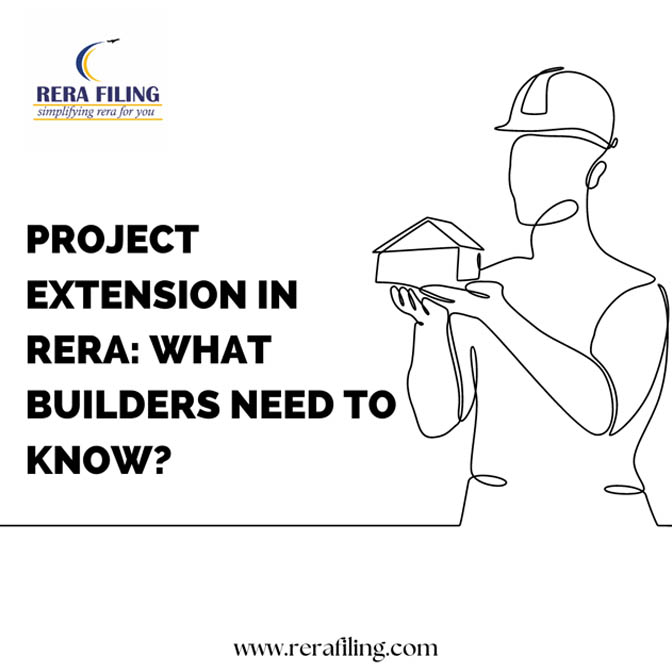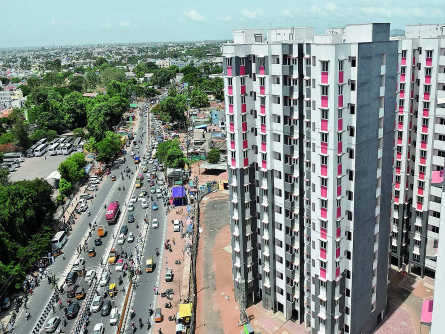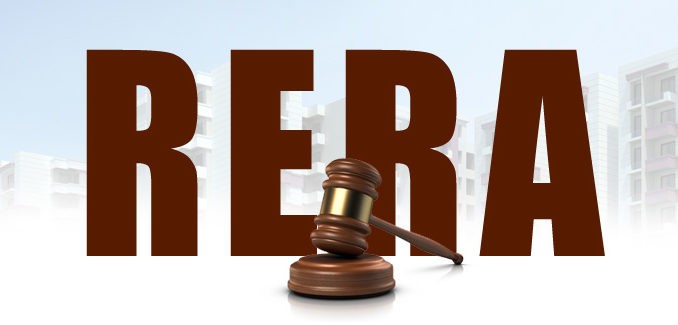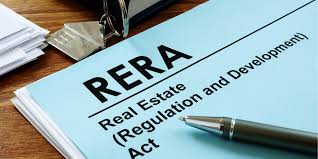
- General
- Author: Riddhi Singh
Highlights
-
The Real Estate (Regulation and Development) Act, 2016 (RERA), introduced to regulate the real estate sector, emphasizes the timely delivery of projects and transparency between builders and homebuyers.
-
In this article, we’ll break down the extension process for builders, focusing on force majeure events, reasonable circumstances, and the role of allottees, while elaborating on Sections 6, 7, and 8 of the Act.
The Real Estate (Regulation and Development) Act, 2016 (RERA), introduced to regulate the real estate sector, emphasizes the timely delivery of projects and transparency between builders and homebuyers. However, despite a builder’s best efforts, there can be unforeseen delays. RERA recognizes these challenges and provides provisions for project extensions in specific circumstances. In this article, we’ll break down the extension process for builders, focusing on force majeure events, reasonable circumstances, and the role of allottees, while elaborating on Sections 6, 7, and 8 of the Act.
Extension Due to Force Majeure
One of the most common reasons for project delays is the occurrence of force majeure events, situations beyond the control of the builder that significantly hinder project progress.
Force majeure under Section 6: RERA allows extension for up to a year to the builders when faced with such events, including natural calamities, wars, or other unforeseen disasters. Builders must provide proof of the force majeure event to the regulatory authority to be granted this extension. For builders, this provision offers relief in the face of genuine disruptions, ensuring delays caused by uncontrollable factors are not penalized.
Extensions for Reasonable Circumstances
Not all delays arise from force majeure events, and there are situations where the builder faces unavoidable challenges not directly caused by external disasters.
Reasonable circumstances extension: Builders can request a one-year extension under reasonable circumstances that are beyond their control but do not qualify as force majeure. For instance, delays due to government approvals, unexpected legal hurdles, or supply chain disruptions can be considered "reasonable circumstances." Importantly, these delays must not be due to any fault of the builder.
Builders must present a strong case to prove that they are not responsible for the delay and have acted in good faith throughout the project. It is up to the authority to grant extension or not following which a certain amount of fees for extension is paid to the authority.
Section 7: Revocation of Builder Registration
While RERA allows extensions, it also holds builders accountable. Section 7 outlines the steps the regulatory authority can take if the builder repeatedly fails to deliver, even after extensions.
Section 7: Revocation of registration: If a builder is unable to meet project deadlines despite receiving an extension, the regulatory authority can revoke the project’s registration. Before revocation, the builder is usually given an opportunity to rectify the delays or other issues. However, if the builder consistently fails to meet the required standards, RERA can take over the project.
Builders need to take this provision seriously, as revocation can lead to the loss of control over the project and damage the builder’s reputation.
Section 7(3) and Project Extensions by RERA Authority: Section 7(3) of RERA grants the regulatory authority the power to intervene if it believes that an extension is in the best interest of the homebuyers.
Section 7(3) provisions: If the builder has faced challenges in completing the project but there is still potential for completion, the authority may allow an extension under specific conditions. This extension could also come with additional terms, such as engaging a third-party contractor to ensure timely completion, especially if the builder has consistently failed to meet deadlines.
For builders, Section 7(3) can be a safety net that allows for additional time to complete the project, provided the regulatory authority deems it beneficial for the allottees.
Section 8: Ensuring Project Completion
When the builder’s registration is revoked under Section 7, Section 8 of RERA steps in to ensure that the project is completed for the benefit of the homebuyers.
Section 8: Project completion upon revocation: In this particular section the authority works as an observer. If the builder’s registration is revoked, the regulatory authority takes over the project’s completion. This could involve appointing a new builder or engaging other professionals to ensure the project is delivered to the allottees. Builders must understand that if this occurs, they lose all rights to manage the project. In any case or circumstances, if the builder is unable to follow the guideline given by the authority, registration may be revoked.
For builders, the takeaway from Section 8 is clear: delivering the project on time is critical, and failing to do so can result in the loss of both control and credibility.
Conclusion
For builders, RERA provides a structured framework for project extensions, allowing flexibility in genuine cases while holding builders accountable for delays. Whether due to force majeure or reasonable circumstances, builders can apply for extensions, but must maintain transparency and act in good faith. Sections 6, 7, and 8 ensure that while builders have the opportunity to extend deadlines, they are still bound by strict oversight to protect homebuyers’ interests. Ultimately, timely delivery and open communication are key to successfully navigating RERA’s extension provisions.
Copyright © 2026 RERA Filing. All rights reserved.

 Rera Act
Rera Act
 Maharashtra
Maharashtra
 Karnataka
Karnataka
 Telangana
Telangana
 Andhra Pradesh
Andhra Pradesh
 Delhi
Delhi
 Uttar Pradesh
Uttar Pradesh
 Haryana
Haryana
 Gujarat
Gujarat
 Bihar
Bihar









